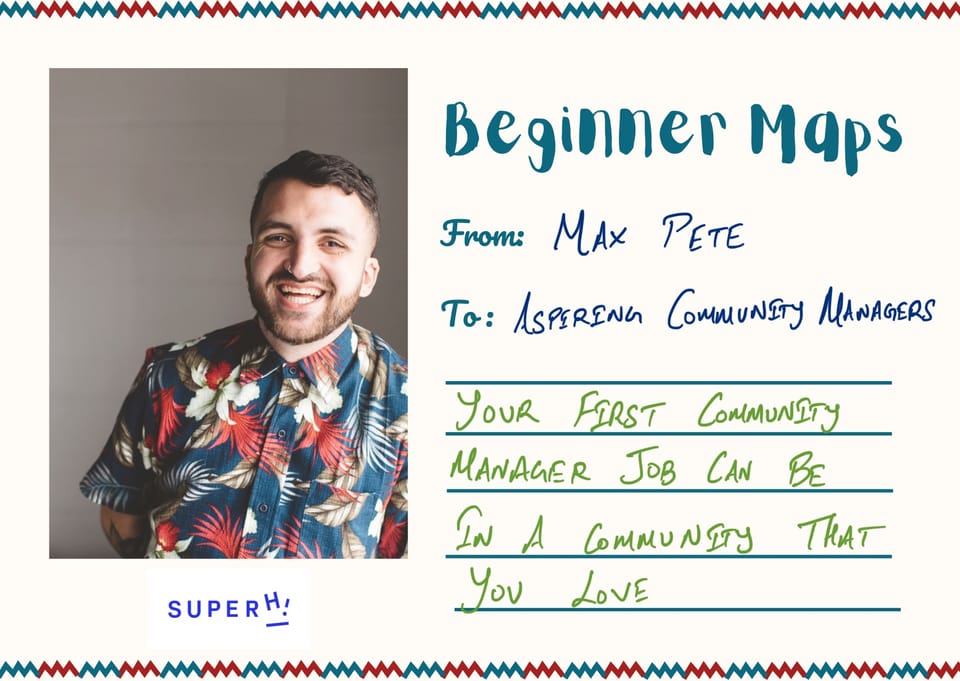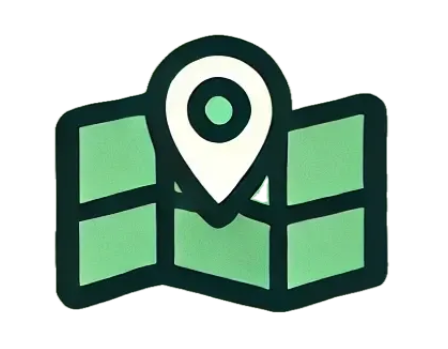Your First Community Manager Job Can Be in a Community that You Love
That’s Max Pete talking about how he got his first community job at Freelance Founders before he even knew what community management was! In fact, he was a freelance website designer who was trying to find the next chapter of his career.

“One day I get a newsletter from them saying that they were hiring a community manager. Didn’t really know what the role was but I reached out to them and asked if the role is still open. They reply back saying, “Honestly, we were actually thinking about you when we wrote this role. So if you want it, it’s yours!””
That’s Max Pete talking about how he got his first community job at Freelance Founders before he even knew what community management was! In fact, he was a freelance website designer who was trying to find the next chapter of his career.
Today, he is a professional community builder. He is currently the Lead Community Manager at SuperHi - a startup that teaches design, code and project management skills.
What’s super cool is that Max was an active community member of both SuperHi and Freelance Founders communities before he ever thought about working there.
Isn’t that the best?
His story shows that it’s possible for you to get your first community job in a community that you love. In this article, we decode how Max did it so you may replicate it for yourself.
You can also listen to our podcast to hear him tell his story in his own words:
Find a community and become a superuser in it
“There was a very popular channel called advice where people were asking questions. I was always in that channel offering help to people people based on my past experience with freelancing. Anytime there was a new member, I was welcoming them in.”
As a community builder, the best investment you can make in your career is joining an active community. Those are rare. When you find one that you like, join it and become a superuser there.
Why does it work?
Put yourself in the shoes of a hiring manager. If you are looking to hire a community manager for your community, your best option will be to hire someone who your community already knows and respects.
That’s what Max does in all online communities he joins.
And the benefits of engaging in such communities goes way beyond simply using them as potential job leads. It helps you understand the other side of the equation from the member’s perspective.
When Max finds a community that aligns with his values, he makes the time to engage in it because he knows that’s how he will learn the most. If you want value out of something, you have to provide something as well. Plus, its a really cool way to meet new people and network.
Create opportunities for yourself
You shouldn’t wait for someone to post a job opening. If you’re really active in a community that you really like, you should just pitch yourself. It’s underrated.
When Max was looking for his second big role in community, he reached out to his contacts that he had been in touch with throughout the years. SuperHi was one of them. He had been in their community for a long time.
He sent their CEO a msg in their Slack community, even though they didn’t have a role open at the time. He basically said something like, “I’m looking to get a role in community. <This> is what I’m doing now and I’m open to work.”
Serendipity played its part and he got a response saying that they were actually looking to hire for this role. Next thing you know, CEO puts him in touch with the hiring manager, they talk and BAM! He’s now working as the Lead Community Manager at SuperHi.
Putting yourself out there like this can be difficult. This is a long shot and the likely outcome is a rejection. Max’s advice? If you’re going to hear a ‘no’ then you’re not going to be a worse position than you are now.
But if you pitch yourself, you can create the opportunities you want. Just tell them why they need this role, why they need you and what you can do to help them.
Plan for dealing with the Imposter Syndrome
Even if you join a community that you’re familiar with, the Imposter Syndrome is going to hit you. Max says that you just have to accept it and it’s going to always be there.
Here’s how he has dealt with the hard times:
- Joining Community ClubWhen Max started his first community manager job, he didn’t know much about building communities. That’s why, when he joined the Community Club Slack, he was hooked!He started helping people out, responding to questions, facilitating connections and became a superuser. In fact, that’s where I first came across him. It would have been impossible to miss him if you were in the Slack at that time - he was there in every thread!The network he made and the things he learnt there helped him understand community building and discover that it’s a career he enjoys.
- Working with a community coachIn his current role, he doesn’t have anyone senior who is from the community industry. So, he works with an outside Community Coach. She helps him stay accountable and helps him get answers to questions he’s not comfortable asking his team or his friends.Since the community profession is new, it is common for new community professionals to not have community role models on their team. Working with a coach can help you in your hard times too.
Creating a “wins” folder
I can say without a doubt that one of the best decisions that I have made since I started my work in community was to create a wins folder on my computer.
Max take screenshots of really awesome stuff he has done, people who congratulated him, appreciation from community members or team members and puts them in a folder.Then, when imposter syndrome hits, he can browse through it to reflect on the good things he has done. It helps him snap out of it!He has written a very detailed article on his approach for creating a “wins folder” on his blog.

